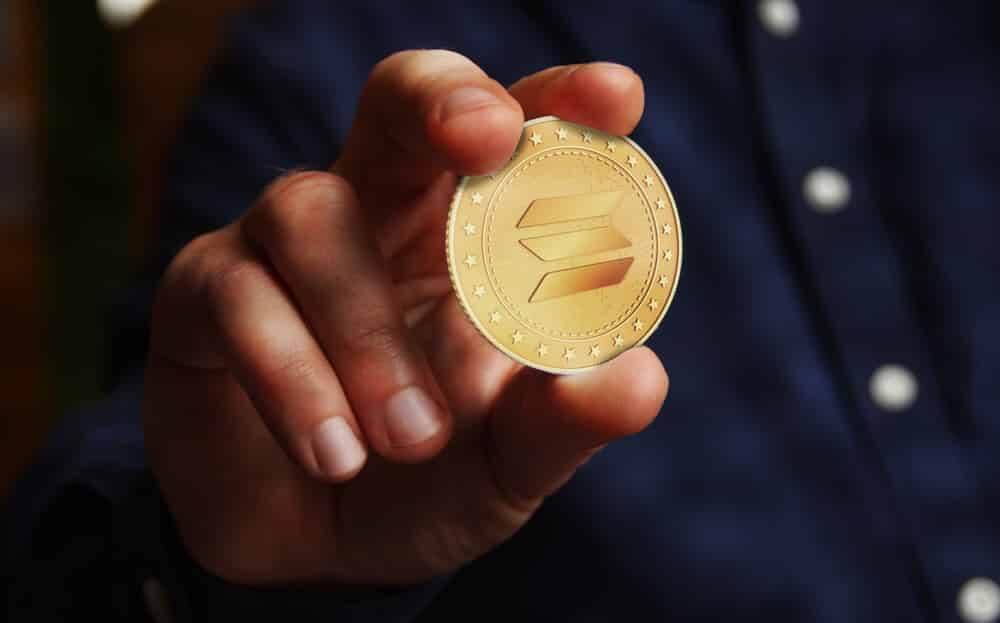
Omicron Crypto surges as COVID-19’s new variant appears
The news of the COVID-19 variant has affected the world market, including cryptocurrency. The recently surged Omicron coin remains resilient.
After WHO named the new coronavirus variant first discovered in South Africa and Botswana, “Omicron,” an obscure cryptocurrency with the same name, soared.
Cryptocurrency experts say that the currency has soared due to the similarity to the new variant of the coronavirus.
OMIC is the native token of the decentralized reserve currency protocol. It had a bid of nearly $70 early on Friday and rose to $711 on Sunday.
This rise is an example of “irrational peaks,” as cryptocurrencies have risen due to their similar names to COVID-19 variants.
According to analysts, OMIC is far from a “safe haven asset.” Experts indicate that the OMIC token is on the Ethereum expansion technology Arbitrum.
The Omicron token traded at approximately US$371 at 9:35 a.m. Eastern Time, while on Thursday, it was worth about $65.
From “Squid Game” to Dogecoin, small cryptocurrencies have benefited from links with memes or Internet culture this year. They have recorded rapid booms and depressions. At the same time, more mainstream names such as Bitcoin have maintained popularity.
It is unclear since when is Omicron token was launched. CoinGecko’s price data is only available from November 8th, while the Telegram channel called OmicDAO was launched one day ago.
South Korea delayed plans of crypto capital taxation to 2023
South Korea has been planning to tax crypto capitals from next year. However, on Tuesday, the Ministry of Finance said that the National Assembly passed a bill to postpone this plan. Thus, the taxation of capital gains on cryptocurrency transactions will be active from 2023.
Once the bill is approved in the plenary session, the country will begin to impose a 20% capital gains tax on annual cryptocurrency transaction earnings of more than 2.5 million from January 2023.
South Korea had earlier stated that it would start taxing the capital gains of cryptocurrencies in January next year.
Hong said that cryptocurrencies are “intangible assets” and added that labeling them as currencies is a “misunderstanding.”
The person in charge of finance also warned that digital token transactions are prone to new forms of illegal fund-raising and fraud. Thus, the plan aims for the investors to remain vigilant when making investment decisions.
The National Assembly plans to hold the plenary session on December 2.
Central Bank Digital Currency (CBDC) is coming to fight cryptocurrencies
According to Bank Indonesia, CBDC is a digital version of the national currency that will help the growing adoption of cryptocurrencies. They claim Central Bank Digital Currency (CBDC) to become an important tool to combat cryptocurrencies.
Juda Agung, Assistant Governor of the Bank of Indonesia, stated at a recent parliamentary meeting that the Bank of Indonesia is considering launching a digital rupiah to fight cryptocurrencies such as Bitcoin.
The official pointed out that despite the severe impact on the financial system, cryptocurrencies such as Bitcoin are currently traded with commodity futures and are regulated by the Ministry of Trade.
The news came shortly after the National Council of Ulema (MUI), the highest Islamic academic institution in Indonesia, reportedly found that Islamic teachings banned Bitcoin.
The Indonesian government has taken a different stance on crypto regulation

While maintaining a mixed stance on cryptocurrencies, Indonesian regulators are increasingly paying attention to potential CBDCs. In May, Bank Indonesia President Perry Warjiyo announced plans to launch the digital rupiah as a legal tender in Indonesia.
CBDCs like China’s digital yuen will curb the adoption of cryptocurrencies.
Indonesia is not the only one that believes that CBDC can help the government crackdown on cryptocurrencies. In mid-November, President of the Russian Central Bank Elvira Nabiullina stated that CBDC should be a good choice for the government to replace decentralized cryptocurrencies such as Bitcoin.
Solana transaction consumes as little as two Google search equivalent energy

Solana has recently released its November network energy consumption statistics. These statistics showed that standard SOL transactions now only consume 1,837 joules of energy less than two Google searches.
These data represent some of the highest energy efficiencies provided by the top 25 blockchains.
Proof of Work (PoW) transactions on the Bitcoin network require a staggering 6,995,592,000 joules-the equivalent of 57 gallons of fuel.
Although Ethereum consumes ten times less than Bitcoin, it still generates a worrying carbon footprint. Each PoW transaction requires 692,820,000 joules of electricity (just less than 6 gallons of fuel).
Vitalik Buterin plans to move Ethereum to a more environmentally friendly Proof of Stake (PoS) technology. However, even so, each transaction requires 126,000 joules-the equivalent of 68 Solana transactions.
Cardano (ADA) is an interesting comparison because it is considered one of the least influential blockchains. It actively pursues carbon neutrality through the exciting Cardano Forest community challenge. However, an ADA transaction used 1,800,000 joules (0.5KwH).
This is roughly the same as a PlayStation 5 console running for two hours.
The entire Solana network contains 1,196 validator nodes and processes an estimated 20,000,000 transactions.
According to the report, this uses approximately 3,186,000 kilowatt-hours per year-which is said to be equivalent to the electricity consumption of 986 American households.
The Solana Foundation stated that the network plans to be carbon neutral by 2022.
-
Support
-
Platform
-
Spread
-
Trading Instrument




